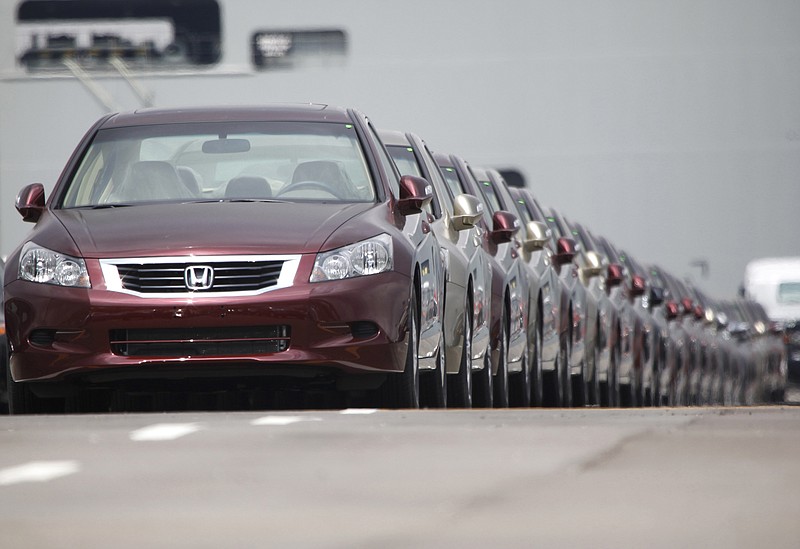Do Subaru Foresters, BMW 3-series sedans and Toyota Priuses pose a threat to U.S. national security?
President Donald Trump suspects they might. He's ordered the Commerce Department to investigate whether the peril is dire enough to justify tariffs or quotas on imports of foreign-made vehicles and auto parts to the United States.
The announcement sent shares of Japanese and European automakers tumbling in global stock markets Thursday. It also aggravated trade tensions between the United States and allies like Germany and Japan. And most economists and trade analysts ridiculed any notion that national security might be imperiled by the flow of vehicles imported to the United States.
WHAT DID THE PRESIDENT DO?
Trump ordered Commerce Secretary Wilbur Ross to investigate whether imported cars, trucks and auto parts threaten U.S. national security. If Commerce finds that they do, it can recommend trade sanctions, including tariffs and quotas. This investigation could take months.
The Trump administration is turning to a little-used weapon in trade policy: Section 232 of the Trade Expansion Act of 1962. It empowers the president to restrict imports and impose unlimited tariffs if Commerce finds they threaten national security.
HAS THE U.S. DONE THIS BEFORE?
In March, after an earlier Commerce investigation, the Trump administration dusted off Section 232 authority to slap tariffs on imported steel and aluminum.
Until then, the United States had pursued only two such inquiries since joining the Geneva-based World Trade Organization in 1995. Both times - in a 1999 case involving oil imports and a 2001 case involving iron ore and steel imports - the Commerce Department refused to recommend sanctions.
HOW COULD IMPORTS IMPERIL U.S. NATIONAL SECURITY ANYWAY?
Relying on imports can theoretically leave a country vulnerable in times of war: Before imposing tariffs on imported aluminum, for instance, the Commerce Department found that only one home-grown smelter in the United States was capable of producing the high-purity aluminum used to upgrade F-18, F-35 and C-17 military aircraft. If, in theory, that smelter were to close, the military would have to scramble to find a replacement. The tariffs were meant to protect domestic aluminum manufacturers and encourage production.
HOW MIGHT AUTO TARIFFS AFFECT THE ECONOMY?
That depends. The Trump administration diluted the impact of March's steel and aluminum tariffs by giving trading partners, including the European Union, Canada and Mexico, a reprieve until June 1. It might end up offering exemptions again, which could blunt any economic impact.
Trump argues that protecting the U.S. auto industry would put more Americans to work in car factories. But most economists are skeptical. Many employers are scrambling to find qualified workers. And today's auto plants are highly automated and don't employ as many workers as they did in the heyday of American manufacturing in the 1970s.
Moreover, the tariffs would affect the imported parts that U.S. manufacturers rely on, thereby driving up costs.
"Access to worldwide markets is critical for the motor vehicle parts industry to remain competitive," said Bill Long, executive vice president of government affairs at the Motor & Equipment Manufacturers Association. "Imposing 232 tariffs on motor vehicle parts and motor vehicles will put American jobs - and national security - at risk."
Tariffs also amount to a tax on imports and could drive up the price American consumers pay for cars.
"Raising taxes on Americans who choose to buy imported cars or trucks is a bad idea," said Republican Sen. Pat Toomey of Pennsylvania. "Doing it under the false pretense of national security - Section 232 - is an even worse idea, as it invites retaliation and weakens our credibility on actual trade disputes."
